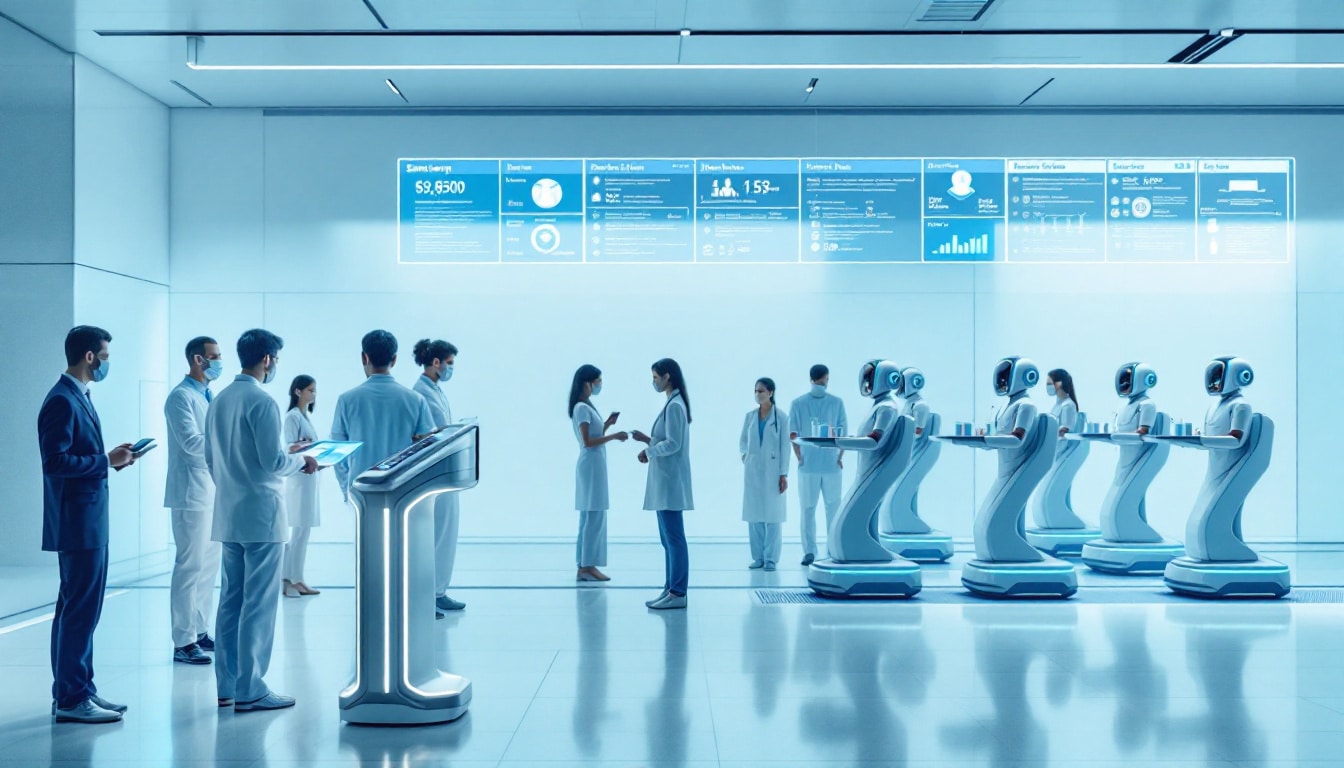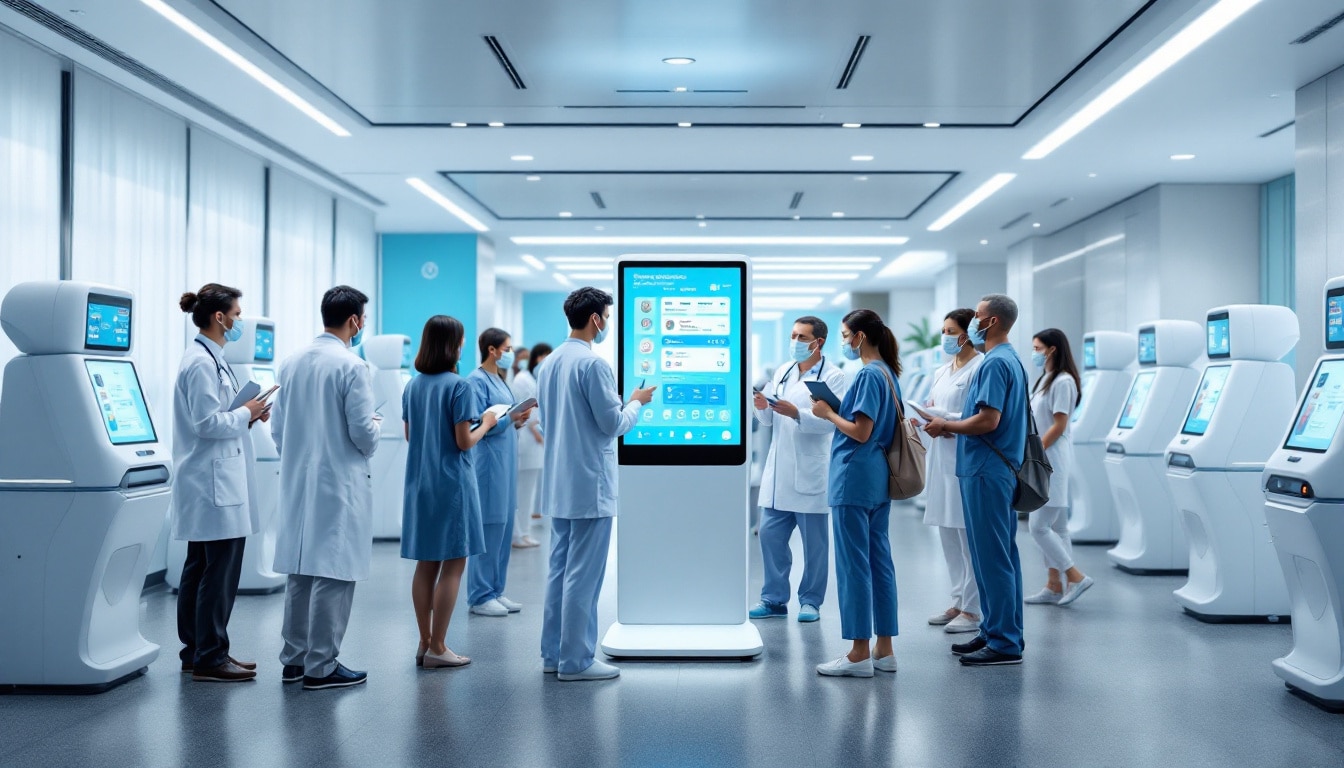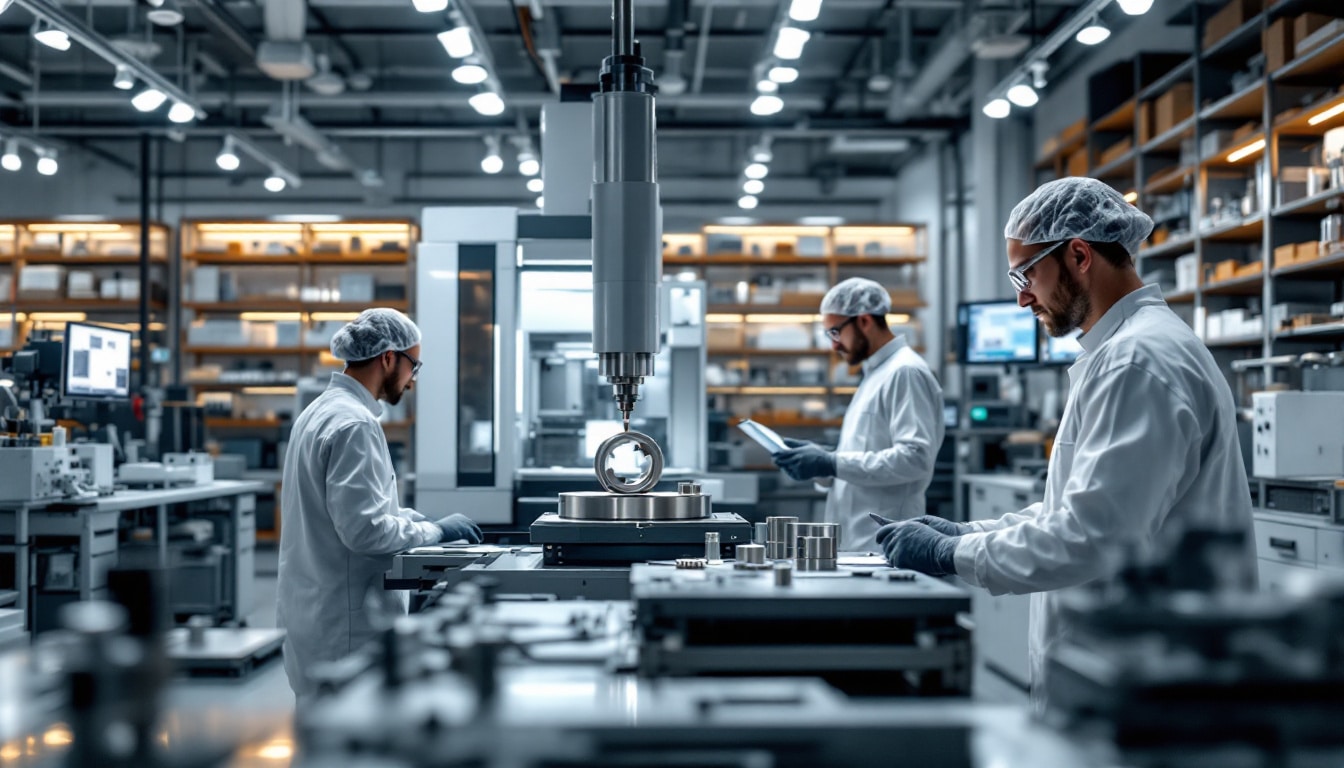The next must-attend meetings in the field of health are approaching rapidly. Two major events are shaping up on the calendar of medical innovations.
The HIMSS25 European Conference and Exhibition will take place in Paris from June 10 to 12, 2025, bringing together the most influential health community in Europe.
At the same time, the AI in Healthcare Forum in New York from July 10 to 11, 2025, will explore the transformative potential of artificial intelligence in healthcare.
These gatherings offer a unique platform for knowledge sharing and showcasing the latest innovations.
During HIMSS25, participants will be able to attend in-depth demonstrations and engage with industry leaders.
The AI forum will highlight concrete examples of artificial intelligence applications throughout the continuum of care.
These events promise to stimulate significant advances in improving the health and well-being of patients.

what is medical record automation?
Medical record automation represents a significant advance in the healthcare field, aiming to improve the management and transmission of patient information. At Samsung Medical Center, this transition to automated systems not only reduces human errors but also accelerates access to critical data. By integrating advanced technologies, such as electronic medical record management systems (EMRMS), the facility optimizes the medical workflow, thus ensuring better coordination among different departments. This automation encompasses several aspects, including digitizing paper records, implementing secure databases, and using analytical tools to extract relevant information in real-time. Moreover, automation facilitates compliance with strict regulations regarding health data protection, ensuring that sensitive information is protected against unauthorized access. By adopting these systems, Samsung Medical Center positions itself at the forefront of medical innovation, providing faster and more accurate care to its patients.
why did Samsung Medical Center choose to automate its medical records?
Samsung Medical Center decided to automate its medical records for several strategic reasons. Primarily, the goal is to improve operational efficiency and reduce the delays associated with manual record management. This approach allows healthcare professionals to focus more on patient care rather than administrative tasks. Additionally, automation addresses the growing need to process an increasing volume of medical data with enhanced accuracy. Furthermore, this initiative aligns with a desire to adopt cutting-edge technologies, thereby strengthening the medical center’s position as a leader in innovations within the healthcare sector. Moreover, in light of the workforce crisis in the healthcare sector, automation helps to alleviate staff shortages by optimizing processes and reducing the workload of medical teams. Finally, this transition to automated systems is also motivated by the need to provide a better patient experience, ensuring faster and more secure access to their medical information.
what are the benefits of this automation for patients?
Medical record automation at Samsung Medical Center provides numerous benefits to patients. First, it ensures quick and secure access to their health information, which is crucial in the event of a medical emergency. With well-organized electronic records, doctors can instantly obtain a patient’s complete medical history, facilitating a more accurate diagnosis and appropriate treatment. Additionally, automation reduces the risks of medical errors linked to manual data entry, thereby enhancing the safety of care. Patients also benefit from better coordination among various specialists, as information can be easily shared within the automated system. Furthermore, this technology allows patients to access their own records online, thereby enhancing their autonomy and engagement in managing their health. In connection with medical innovations, this automation also enables the integration of advanced analytical tools, offering personalized treatment perspectives based on accurate data. Lastly, by participating in conferences such as the HIMSS25 European Health Conference & Exhibition, Samsung Medical Center shares its advancements, thus contributing to the continuous improvement of medical practices for the benefit of patients.
how does automation improve medical staff efficiency?
Medical record automation radically transforms the daily life of medical staff at Samsung Medical Center. By eliminating repetitive administrative tasks, healthcare professionals can focus more on their primary responsibilities, namely patient care. For example, automated management of appointments and prescriptions helps to reduce waiting times and optimize schedules, thus improving the overall productivity of teams. Moreover, instant access to relevant medical information allows doctors to make informed decisions quickly, which is essential in critical situations. Automation tools also include automatic reminders for consultations and follow-ups, thereby reducing forgetfulness and coordination errors. Additionally, the integration of artificial intelligence in processing medical data offers predictive analyses, helping teams anticipate patient needs and plan resources accordingly. This proactive approach contributes to better time and resource management, thus increasing the efficiency of medical staff. Finally, by participating in forums such as the AI in Healthcare Forum, the medical center exchanges with other industry leaders, integrating best practices and innovations to continuously optimize its automated processes.
what challenges did the medical center face during automation?
The introduction of automated systems at Samsung Medical Center has not been without challenges. One of the main obstacles was transitioning from paper records to a digital system. This process required careful planning and considerable resources to digitize and organize thousands of existing records without disrupting daily operations. Furthermore, training medical and administrative staff to use the new technologies posed a major challenge. Ensuring rapid and effective adoption required intensive training programs and ongoing technical support. Another significant challenge was securing medical data. Ensuring the confidentiality and integrity of patient information required implementing robust security measures, compliant with local and international regulations. Moreover, integrating new systems with existing infrastructure posed technical issues, necessitating specialized expertise to ensure optimal compatibility and interoperability. Finally, managing change within the organization has been a delicate aspect, as some staff members may have been reluctant to abandon traditional methods. To overcome these challenges, the center implemented an effective change management strategy, including transparent communication and involving employees at every stage of the automation process.
what technologies are used in this process?
Samsung Medical Center has adopted a range of advanced technologies to automate the delivery of medical records. Among these technologies, electronic medical record management systems (EMRMS) play a central role, allowing for storing, organizing, and easily accessing patient information. In parallel, the use of artificial intelligence (AI) and machine learning enables analyzing large volumes of data to identify trends, predict care needs, and personalize treatments. Blockchain is also being explored to ensure the security and traceability of medical data, providing an additional layer of protection against unauthorized access. Additionally, robotics tools are used to automate certain physical tasks related to record management, thereby reducing the manual workload of staff. User-friendly interfaces are developed to facilitate healthcare professionals’ interaction with automated systems, ensuring rapid adoption and effective use. Finally, the center integrates IoT (Internet of Things) sensors to collect real-time data on the state of patients, allowing for continuous and accurate updates of medical records. This combination of innovative technologies creates a robust and effective digital ecosystem, supporting the center’s goal of providing high-quality care.
what is the impact on medical data management?
Medical record automation at Samsung Medical Center has profoundly changed the management of medical data, offering numerous advantages. First, it ensures a centralization of information, allowing for quick and simplified access to patient data for all authorized healthcare professionals. This centralization reduces redundancy of information and minimizes the risks of transcription errors. Furthermore, automation facilitates real-time updates of records, ensuring that all changes and new treatments are immediately available to the entire medical team. This dynamic fosters better coordination of care and optimal continuity of treatments.
In terms of data security, automated systems integrate advanced encryption protocols and strict access controls, protecting sensitive information from breaches and cyberattacks. The use of technologies such as blockchain further enhances data traceability and integrity, ensuring that each modification is recorded immutably. Moreover, automation allows for utilizing data analytics tools to extract valuable insights, facilitating medical research and the continuous improvement of clinical practices.
Another significant impact is the reduction of costs associated with managing paper medical records, including storage, maintenance, and the staff needed to manage these records. By adopting digital solutions, the medical center can optimize its resources and reallocating funds toward innovation and care improvement initiatives. Lastly, automation contributes to environmental sustainability by decreasing paper usage, thus aligning the medical center with environmentally responsible practices.
how does this initiative fit into current healthcare trends?
Medical record automation at Samsung Medical Center aligns perfectly with current trends in the healthcare sector, revolving around digitalization and technological innovation. The transition to digital systems responds to the increasing demand for personalized care and better management of health data, two priority areas in the modern medical landscape. By integrating technologies such as artificial intelligence and the Internet of Things (IoT), the medical center positions itself at the forefront of advancements in telemedicine and remote care, enabling continuous and flexible management of patients.
Furthermore, this initiative contributes to remote monitoring and real-time data generation, facilitating early intervention and proactive management of health conditions. By participating in events such as the HIMSS25 European Health Conference & Exhibition, Samsung Medical Center shares and adopts global best practices, thus reinforcing its commitment to clinical excellence and innovation.
Moreover, the emphasis on data security and confidentiality aligns with strict regulatory requirements and the growing expectations of patients regarding the protection of their personal information. The initiative also supports efforts to respond to the workforce crisis in the healthcare sector by automating administrative processes, allowing medical staff to focus on direct patient care.
Finally, this approach is consistent with sustainability goals in healthcare, reducing the environmental footprint through decreased paper usage and promoting more eco-friendly practices. In summary, the automation of medical records at Samsung Medical Center is a strategic response to contemporary healthcare challenges, integrating the latest innovations to provide superior quality care.
The progressive automation of medical record delivery at Samsung Medical Center represents a major turning point in optimizing hospital processes. By integrating advanced technologies, the medical center not only improves administrative efficiency but also ensures enhanced security of patient data.
Thanks to this automation, healthcare professionals can access essential medical information more quickly and reliably, facilitating informed decision-making and accelerating treatments. Furthermore, the reduction of manual tasks decreases the risks of human errors, ensuring better quality of care provided.
This technological transition is accompanied by ongoing training for staff, ensuring a smooth adoption of new tools and optimal use of automated systems. Samsung Medical Center’s commitment to innovation fosters a culture of collaboration and continuous improvement, essential for staying at the forefront of medical advancements.
Moreover, the automation of medical records allows for better compliance with regulations regarding personal data protection and confidentiality. Samsung Medical Center thus demonstrates its commitment to excellence and security, consolidating its position as a leader in modern healthcare.














